"You will live!"
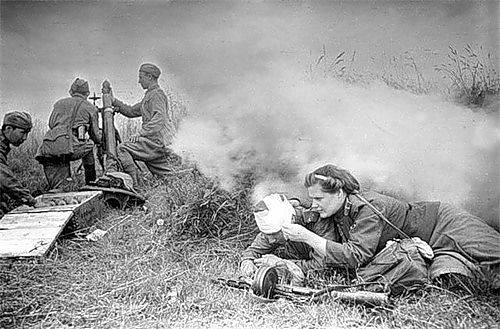
The participant of the Great Patriotic War, the holder of the Orders of the Red Banner of Labor, the Red Star, the Patriotic War and many medals Lyubov Lukinichna Tyazhkun after tenth grade entered the Omsk Medical Institute. And when, during her internship, she saw students in the morgue working with corpses, she ran away from the institute. But behind it came the teachers of the university, explained that there is no more noble and honorable profession on earth than the doctor’s profession. And the feeling that a doctor feels when rescuing a sick person almost from the other world cannot be compared with anything. Lyuba returned to the classroom.
In 1943, among the 150 graduates of the medical institute, she went to the front.
“4 July 1943 of the year,” recalled Lyubov Lukinichna, “our train arrived at Otreshkovo station, located in 20 kilometers from the city of Kursk. The station index has been preserved, but the station itself did not exist, only miserable ruins, burned-out buildings, broken locomotives and cars remained from it. They built us, made a roll call. The chief surgeon of the front arrived and announced: "I need ten male surgeons." And we had only nine men, all the rest were women. I hit the men's top ten. We were taken by truck to the area of the collective farm MTS, where the wounded were stationed directly in the open air. There were so many of them that fear seized me.
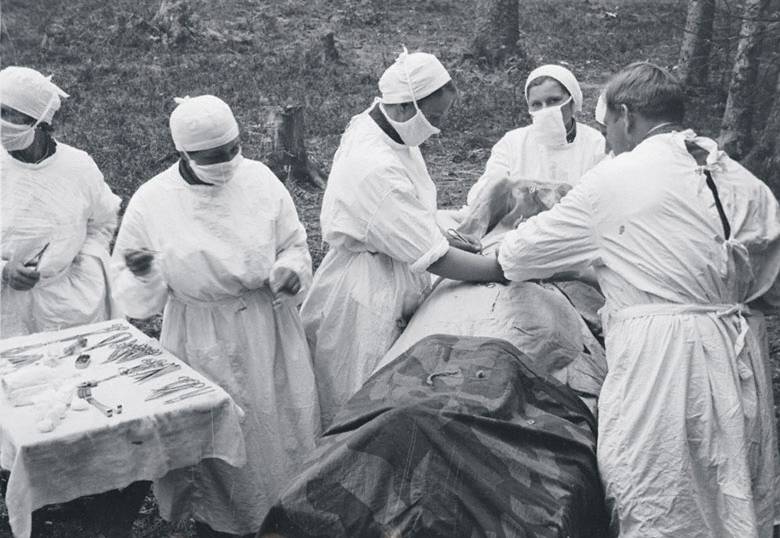
At an accelerated pace, we set up tents and carried the wounded to them. I began my activity as a military doctor with the rank of an ordinary soldier. An experienced operating sister was attached to me. When she learned that I was called to the front right from the institute's bench, she friendly said: "Do not hesitate, ask me, I will tell you." When carrying out the first operations, she pointed out to me: "Here, cut, here neck." And I quickly settled down.
There were strict rules for surgeons in the hospital: amputated leg - hand over it, otherwise the leg will be dragged off by rats. At the same time it was prescribed to doctors to ensure that the rats did not bite the wounded.
After taking the oath, they gave me the title of senior lieutenant of the medical service. Issued commander uniforms, shoulder belt, field bag and a pistol. When Soviet planes flew over the location of the hospital, it became cheerful and joyful. German planes are heavy, the heavy drone of their engines suggested dark thoughts.
After each battle, the flow of wounded increased. Some of them crawled to us on their own, someone was carried in their arms.
We, the surgeons, worked, having lost count, both days and nights. At night, the lamp we had was a shell from a projectile, loaded with tow and diesel fuel.
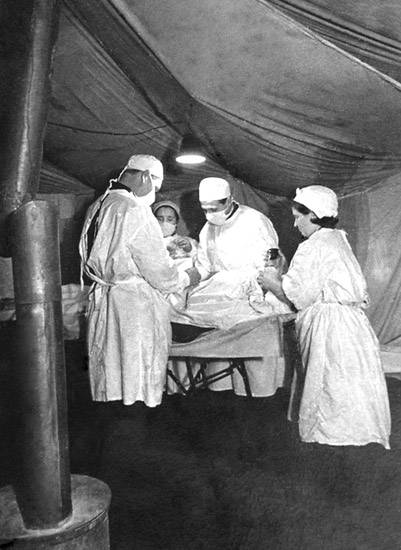
Here, near Kursk, a wounded fighter came to us, I do not know who he was by nationality. He looked at us imploringly and asked: “Save me. I have a lot of baranchuk (children) at home. ” He had a wound in the abdomen, the intestine was broken. We did everything as it should be and told the wounded man: "You will live." You should know with what gratitude he looked at me, and tears of joy glistened in his eyes. And I again remembered the words of my institute teacher: “There is no nobler profession than the medical profession.”
At the beginning of November 1943, our front-line hospital No. 1679 was based in Darnitsa, on the banks of the Dnieper. On the opposite shore in Kiev were fighting. A team arrived: “Surgeons to parachute to the opposite shore, as there were many wounded there.” I got into the number of troops, but the fact that I can not swim, was not taken into account. In the middle of the night we took our place in the boat.
The water in the Dnieper was literally boiling from a hail of fragments and bullets. Our rower struggled against the oars, trying to quickly slip to the shore.
And suddenly our boat was thrown to the side strongly, and a huge mass of water, lifted upward by an explosion, covered us headlong. I found myself in the water, floundering with all my strength, grabbed a board that was floating by and went with it to the bottom. Thought the end. But I feel someone grabbed my hair and pulls me to the surface. The soldiers dragged me into another boat. My boots went to the bottom of the river, and I no longer remember how we reached the shore.
On the beach, I was dressed in a dry robe, somewhere old boots were found. And again, I continued to do operations under the open sky, to help the fighters to fight for life.
November 6 invaders expelled from Kiev. Our hospital was housed in a miraculously preserved building of the highest party school, and we had conditions for work that were close to normal.
Once, during a break in between fights, I was told before the formation that for the salvation of seriously wounded Red Army men, I was awarded the Order of the Red Star. Awards were presented by generals from the front headquarters.
In 1944, we participated in the funeral of Vatutin, commander of 1-th Ukrainian Front. He died from many wounds. He was taken on an artillery carriage through the ruins of the broken Kiev Khreshchatyk and was buried with all military honors.
Soon an order was received to redeploy our hospital to Poland. On the way to Lviv, our echelon was again bombed by German aircraft. We hid from the bombs who, where he could.
From Lviv we arrived in the Polish city of Legnica, where we were placed in different houses. Soon came the order to go to all the doctors in the newly liberated camp for Soviet prisoners of war and to help carry out from this camp weakened, almost dying prisoners. I carried a man in my arms. By weight, he was like a chicken. All the time, moaning and repeating: "Oh, how I want to eat."
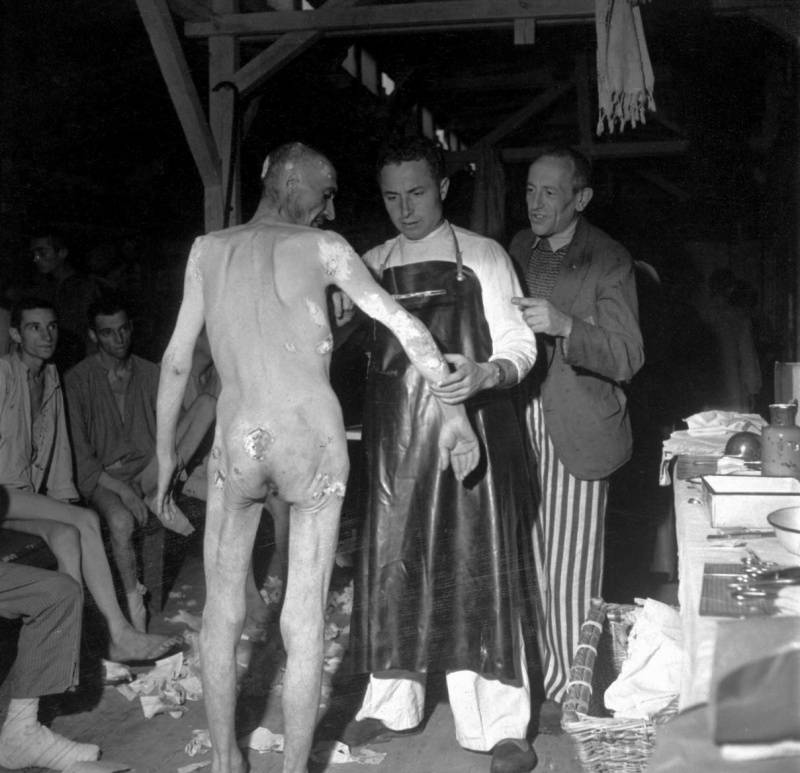
We helped him feed him. This prisoner turned out to be a professor at the Ufa Medical Institute. Having got a little stronger, he thanked us: “Well done, you did the right thing, that you didn’t feed me at once, I wouldn’t have survived.”
In the last year of the war, medical squads began to practice in our hospital, that is, we did not wait for the wounded to be brought to us, but they themselves went to the front line, provided first aid to the fighters, and brought back seriously wounded.
One day, our Studebaker quickly ran down the German road. Suddenly we saw a German plane. Reckoning that the plane will not chase after one car, the driver has developed a top speed. And on one of the turns we were so shaken that we fell out of the body. Well, that was wet weather, and we fell into the liquid mud. I woke up in a German village liberated by Soviet troops. I had a broken leg. The Germans, residents of the village, treated us with exaggerated politeness. A car came and took me back to the hospital, where I met Victory Day.
It is possible to tell about what we saw at the front, but it is impossible to convey what we had to go through, move and feel at the front. I remembered the war, telling you, now I will not sleep all night.
Returning from the front, she worked for 32 for a year in the healthcare system in Chelyabinsk, and then for 20 years she headed the medical commission of the city council of veterans.
Katerina became a hero in 45 years
The hero of the Soviet Union, Ekaterina Illarionovna Mikhailova (Demina), to the smallest details, remembers the details of the first bombing she came under when she was on the train from Leningrad drove up to Brest. So in the first minutes of the Great Patriotic War, the young tenth grader began her heroic way, stretching for 1418 days and nights. She took part in the most complicated combat operations, she was repeatedly rewarded for her courage and bravery, even presented the Hero of the Soviet Union to the Golden Star. But this high rank she received only 45 years after the war, in 1990. Her fellow soldiers in the archives found a front pore view on her, achieved justice restoration.
After graduating from 9, Katya, on the night of June 22, went to 1941 for the holidays from Leningrad to her brother, who was a military man, served in Brest.
Suddenly the carriage swayed violently, then there was an explosion, another, a third. The train stopped abruptly, the passengers began to quickly run out, jump out of the windows.
When Catherine fled from the steps of the last car, a locomotive burned in front, planes with black crosses circled in the sky. People fled to the bushes, dead, wounded fell. And then medical training came in handy for her - she graduated from medical school “perfectly well”.
The girl rushed to assist the victims. Then, together with the other passengers, I hit the bolshak, but again the enemy aircraft flew, bombed and fired, had to hide in the woods.
They were lucky to stop the car going to Smolensk. In a strange city, she went to the military registration and enlistment office: “I am a member of the Komsomol, graduated from medical courses, send me to the front,” Katerina told the officer. She was 16 years old at the time. She was not taken. Katya left the building with tears in her eyes. It turned out on the bank of the Dnieper, where the soldiers unloaded something. The girl spotted the commander: “Take me to your unit, I can bandage wounds, make shots, shoot,” Katya addressed him. The officer checked the documents, took him to headquarters. So Ekaterina Mikhailovna became a fighter of the Red Army, although she did not reach the draft age. Now she did not part with a sanitary bag filled with bandages, harnesses, medicines.
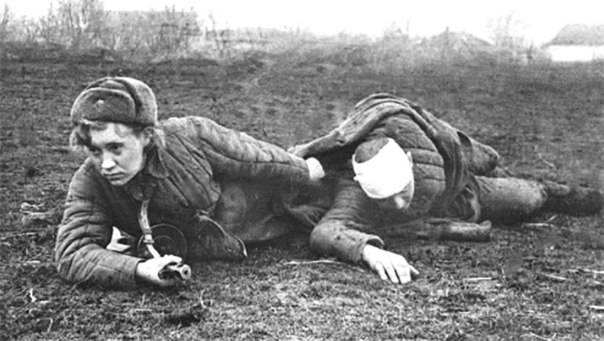
Part of the fighting retreated from Smolensk. Under Yelnya they were surrounded, they fought their way through with theirs. Mikhailova has always been on the front line: she tied up, pulled the wounded out of the shelling, and, if necessary, she also fired from a machine gun.
When the bandages were over, she was tearing the lower shirts of the fighters, bandaging them. Under Gzhatskiy, Catherine was wounded - her leg was smashed by splinters in three places. A paramedic from the next part tied a board to his leg, underwent an operation in the hospital, sent him to Moscow, and from there to Sverdlovsk. The inflammation began, the doctors intended to cut off the leg, Mikhailova did not give.
The bones grew together, but the leg did not bend. To develop it, they sent a young nurse to Baku, to a rehabilitation hospital, where she was treated.
- At that time I had only one desire - to go to the front, to defend the Motherland. All my peers had such a patriotic enthusiasm.
While being treated, Katerina learned that a team was being formed in Baku for the Red Moscow ambulance ship to transport the wounded from Stalingrad along the Volga across the Caspian Sea to Krasnovodsk. Mikhailova wrote a report, achieved early discharge from the hospital, became a sailor.
“There was a strong wave,” said Ekaterina Illarionovna, many soldiers suffered not only from pain, but also from rolling. It was especially hard for a burnt tanker: tossing, shouting, trying to break the bandages. How could she reassure him, and here others asked to drink, turn over, put more comfortable. Suddenly enemy planes flew, they began to bomb. Thank God, our fighters appeared, drove away, we safely reached Krasnovodsk. All the medical personnel of the ship literally fell from fatigue.
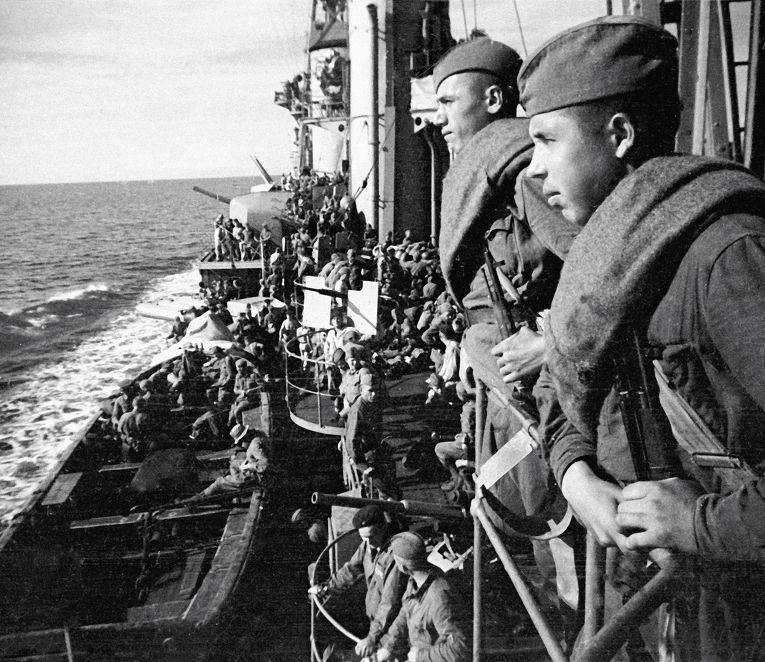
In the spring of 1943, after the end of the Battle of Stalingrad, a successful offensive in the Caucasus, the flow of wounded decreased. Katerina, who by then had become a chief officer, learned that a battalion of marines was being formed from volunteers in Baku.
The battalion received a baptism of fire during the liberation of the Taman Peninsula. Mikhailova was in the forefront of the attackers. In addition to medical bags, she never parted with a gun, in her pockets - grenades. From under the shelling, she pulled men into 2-3 times heavier than herself. Sailors, pitying her, managed to attach the wheels to the cape, so that it was easier. In one of the attacks, she replaced the dead machine gunner, covering the sailors storming the altitude with accurate fire.
Especially strong battle broke out when taking Temryuk. The battalion landed at night from the sea on the territory of the enemy. The attack was powerful, but the Nazis occupied a heavily reinforced boundary: solid pillboxes and bunkers, wire barriers. Sailors rushed forward. Mikhailova tied up the wounded, brought them out and pulled them out of the shelling, removed them from the barbed wire, and was in mortal danger. For the capture of Temryuk, she was awarded the Medal of Courage.
“At the end of October 1943,” Mikhailova continued her story, “our battalion of the marine corps, which was part of the Azov flotilla, at night, in stormy weather, landed in the port of Kerch. When we approached the shore on boats, there was a strong wave, they jumped into the water, some were overwhelmed with a head. When they approached the coast, barbed wire appeared under the water. The Nazis opened fire. It was a total hell. I removed a lot of wounded, killed from the barbed wire, they were picked up by the crews of boats. The battle was uneven, we suffered huge losses. Three days held the bridgehead until the main forces landed. Of the 1200 people in the battalion, only 69 remained alive.
For the capture of Kerch, nurse Ekaterina Mikhailova was awarded the Order of the Red Banner.
After replenishment and rest, there were battles in the Crimea, the battalion liberated Mariupol, then it was transferred to the Danube Flotilla. Preparations began for the assault on the city of Belgorod-Dniester. A platoon of sailors was assigned to carry out flagship intelligence, Catherine also went with them. At night, in boats, observing a disguise, we crossed the Dniester. The shore was very steep, stony, the sailors stood on top of each other, overcoming a cliff.
During the battle, the chief military officer captured the personnel of the bunker, in which there were Romanian 16 and German 2. But she herself was wounded. For this fight 22 August 1944, Ekaterina was presented for the title of Hero of the Soviet Union, but received the second Order of the Red Banner.
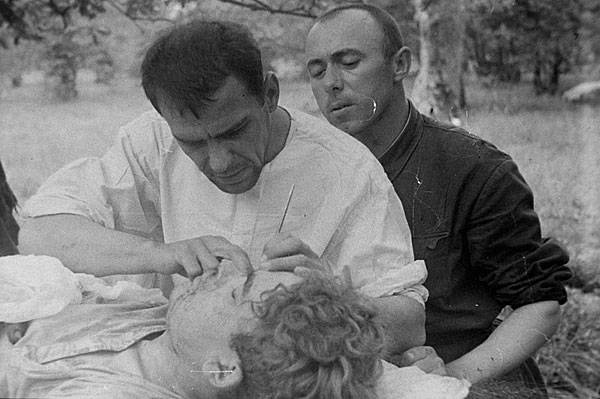
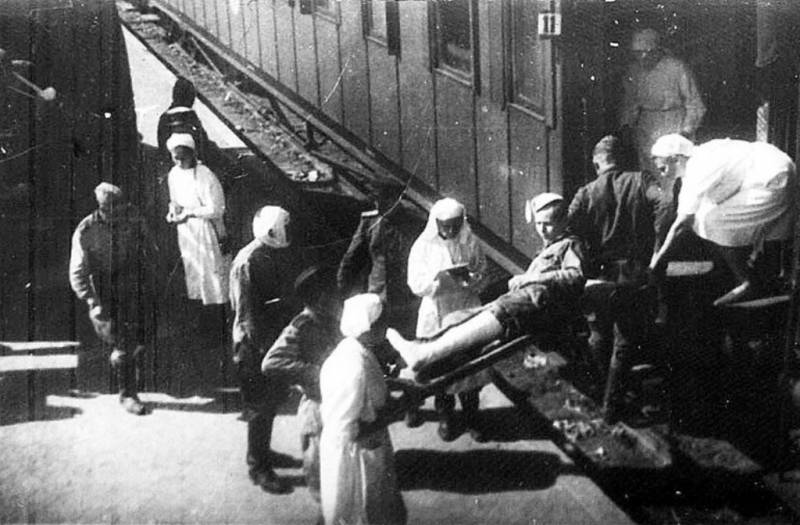
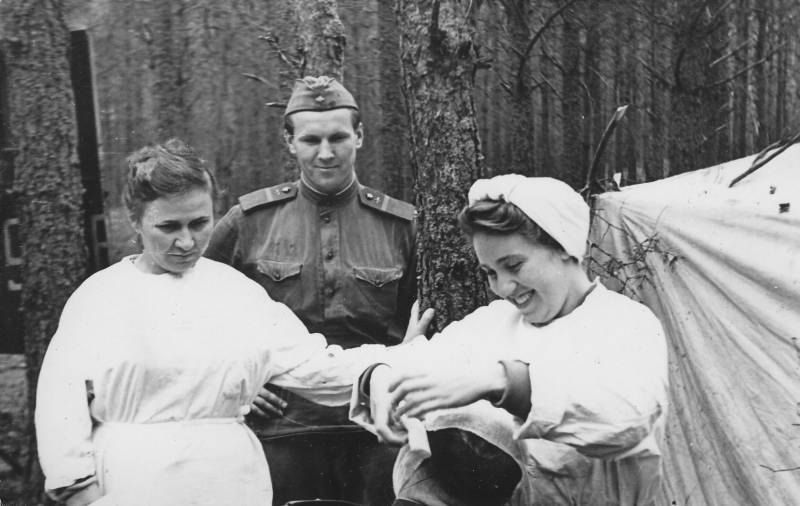
Information